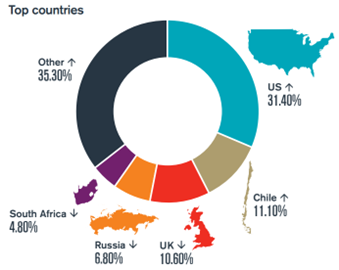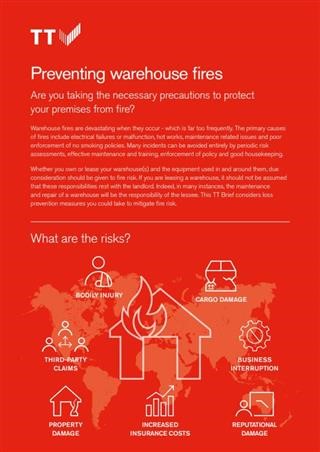Disruptions through the global supply chain continue to create opportunities for criminals to infiltrate and access cargo. In recognition of the threat landscape, TT continues its advisory campaign with the second edition of its a regularly published Supply Chain Security Bulletin.
London 17th November 2022
The international freight transport insurer, TT Club is redoubling its efforts to inform the sector on critical risk profiles. The ongoing impacts of the pandemic blight economies, variable consumer demand trends, labour disputes, and the war in Ukraine all have an influence on continuing the profoundly dynamic global supply chain situation. Congestion at ports and other freight hubs, mis-matches in the availability of transport equipment and ships in relation to demand are all consequences of this volatile environment.
TT’s latest Supply Chain Bulletin* highlights that such disruption can create opportunities for those with criminal intent. Drawing on data, expertise and opinion from organisations across the globe, including TT’s own claims analysis, the Bulletin highlights a series of risk trends and in particular cargo theft.

The graphic above taken from the Bulletin highlights the top countries for cargo theft.
Commenting on the latest publication, Mike Yarwood, TT’s Managing Director, Loss Prevention said, “Our series of Bulletins are aimed at identifying global trends, as well as to focus on particular areas of concern and offer practical guidance for those potentially impacted by freight crime. The risk landscape is constantly evolving; the criminal organisations providing the threat are getting ever more sophisticated. So our regular Bulletins will keep track of those intent on monitoring supply chain activity and building operational profiles to identify a weakness or a particular vulnerability to exploit.”
The 2022 year to date TT claims data utilised in this latest Bulletin highlight the preponderance of electrical goods as targets globally, with the US reporting over 70% of these losses. The split in general between theft from vehicles and depots is in the order of two-thirds versus one-third. This is a consistent finding; though vehicles ‘at rest’ as opposed to hi-jackings are more prevalent targets.
The threat posed by the insider continues to present challenges. TT’s analysis for 2022 suggests that around 23% of reported cargo thefts likely involved insider activity, whether it is in facilitating intricate knowledge of systems and security provisions or simply allowing access to criminals. Digital solutions to enhance the free-flow of goods within a disruptive supply chain environment, however well designed, is a further trend which can give rise to internet-enabled fraud. Computer generated access is creating opportunities to steal cargo through seemingly legitimate transactions.
Yarwood underlines the Bulletin’s advisory nature, “At this time, it would be prudent for those throughout the international supply chain to heighten their levels of awareness and increase their vigilance when carrying out financial transactions. The insider threat clearly also needs to be managed. Security strategies should include control over identification badges/passes and restricting full site access where applicable.”
Other issues covered in this latest edition of the Supply Chain Security Bulletin are the power of social media as a means of investigation; the threat imposed by fake carriers in Europe and a special focus on theft in Papua New Guinea.
Yarwood concludes, “During this final quarter of the year when this type of crime is typically at its most abundant, those managing risk through the supply chain must remain vigilant. The holidays unfortunately create increased demand and market opportunities for criminals to sell their stolen cargo. Via its Bulletins and other stringent risk management activities TT remains dedicated to advise on robust mitigation processes and efforts to disrupt criminal activity throughout the year.”
* Guidance | Supply chain security bulletin (ttclub.com)
ENDS
About TT Club
TT Club is the established market-leading independent provider of mutual insurance and related risk management services to the international transport and logistics industry. TT Club’s primary objective is to help make the industry safer and more secure. Founded in 1968, the Club has more than 1,100 Members, spanning container owners and operators, ports and terminals, and logistics companies, working across maritime, road, rail, and air. TT Club is renowned for its high-quality service, in-depth industry knowledge and enduring Member loyalty. It retains more than 93% of its Members with a third of its entire membership having chosen to insure with the Club for 20 years or more. www.ttclub.com










